This February and March, we’re taking a trip back in time to review the fourth season of The X-Files and the first season of Millennium.
Millennium is a strange television show.
It is quite clear that Chris Carter and Fox both had a very different understanding about how best to follow on from the success of The X-Files. Fox clearly wanted another popular hit, a television show that it could plug comfortably into its 9pm Friday slot and grow into a multimedia franchise. The network spent a phenomenal amount of money promoting Millennium, with advertising and screenings and other publicity attempts. This approach paid off; The Pilot broke all sorts of records for Fox.
However, Millennium could not sustain those viewing figures. Over the first season, it haemorrhaged viewers. Chris Carter was not trying to present an accessible and popular pop hit; instead, Carter was taking advantage of the success of The X-Files to construct something decidedly more esoteric. Millennium is a tough show to watch. It is grim, unrelenting and oppressive. It is a show about darkness in the world that tends to roll up its sleeves and jump right in. Millennium has a clear idea of what it wants to be, but what it wants to be is alienating and uncomfortable.
On just about any level, the first season of Millennium is more accomplished than the first season of The X-Files. The production is more confident, the ideas are much bolder, the themes are much clearer. In fact, the first season of Millennium even holds up well when stacked against the fourth season of The X-Files on an episode-by-episode basis. But that’s not the problem. By definition, “Lance Henriksen fights serial killers and the concept of evil in America” will never be as popular as “David Duchovny and Gillian Anderson fight aliens and monsters and weird stuff!”
The first season of Millennium is a show that offers a distinctive and uncompromising auteur vision which cares little for what the audience might want or expect. For better or worse, that approach would prevent Millennium from ever approaching the critical or popular support that The X-Files had already begun to accrue at the end of its own first season. The result is a television show that was never going to rival The X-Files as a pop culture phenomenon , but which serves as a bold philosophical statement from its creator.
“This is who we are,” the opening credits state, unapologetically. They seem to be speaking for the show as much for society.
 To be fair, the first season of Millennium has its fair share of problems. Any show dealing with serial killers has to walk a fine line; there is a point at which explorations of human suffering become crass or exploitative, at which point the show is not so much exploring evil as wallowing in it. It is a common particularly common to procedural shows like CSI or Criminal Minds or Law & Order, largely due to the sense that reducing any narrative to a strict formula tends to strip out humanity or warmth.
To be fair, the first season of Millennium has its fair share of problems. Any show dealing with serial killers has to walk a fine line; there is a point at which explorations of human suffering become crass or exploitative, at which point the show is not so much exploring evil as wallowing in it. It is a common particularly common to procedural shows like CSI or Criminal Minds or Law & Order, largely due to the sense that reducing any narrative to a strict formula tends to strip out humanity or warmth.
So it is no surprise that Millennium feels particularly sensationalist in episodes that adhere to something of a formula. The first season of Millennium is often described as a “serial-killer-of-the-week” show, in contrast to the “monster-of-the-week” shows on The X-Files. While this label is reductive, there are points where it is quite accurate. Shows like Kingdom Come, Wide Open, Weeds and Loin Like a Hunting Flame all feel like they are scripts going through the motions, playing out familiar beats and luxuriating in the horror inflicted by the central serial killers.
Ironically, clearly defining a formula might have actually helped Millennium secure an audience. After all, later shows like CSI and Criminal Minds found success by reducing the core concept down to pure formula; formulaic episodes of CSI and Criminal Minds are very much the rule rather than the exception. However, the key their success with that formula was a lightness of touch; CSI and Criminal Minds stripped out the heavier philosophical musings that Chris Carter baked into Millennium and pulled back from the sort of brutality that Millennium regularly featured.
Still, the combination of that unrelenting darkness with a somewhat soulless adherence to formula really undermines the middle stretch of the season. On a fundamental level, there are points where Millennium is quite exhausting to watch, which is understandably alienating to viewers. For most of its run, The X-Files is easy to watch. Even the show’s deeply troubled seventh season gets to coast on the fun of watching Mulder and Scully hang out. Millennium has none of that; it is a show that is hard to marathon, that weighs heavier and heavier.
It is worth comparing the first season of The X-Files to the first season of Millennium. On paper, the fourth season of The X-Files is quite dark. In fact, Vince Gilligan provides two pretty haunting serial killer scripts – Unruhe and Paper Hearts. Leonard Betts was the show’s big Superbowl episode, and the writers chose to end it with the revelation that Scully has cancer. In Gethsemane, Mulder is confronted with the knowledge that everything he believes in a lie, and seems to commit suicide in his apartment. That is without getting into the four Morgan and Wong scripts.
However, the fourth season of The X-Files never feels as oppressive or as dark as the first season of Millennium. Frank Black is a great character brought to life by a great actor, but he is not as much fun as Fox Mulder or Dana Scully. On a fundamental level, the first season of Millennium seems like a show that will never produce anything as blackly comical as Die Hand Die Verletzt or Humbug. While Millennium does eventually produce some solid comedy episodes, the series has to effectively reinvent itself to make that possible.
And, yet, Millennium works. There are points where the show’s solemnity becomes a virtue, where the show demonstrates that Carter’s vision can pay off. While the idea of confronting serial killers each week might get a little repetitive, episodes like Blood Relatives, The Thin White Line and even Sacrament find a way to approach the material that doesn’t feel so rote or so generic. The mythology suggested by Lamentation and Powers, Principalities, Thrones and Dominions is fascinating, so much weirder and more abstract than anything on The X-Files.
That seems to be one of the key conflicts of the first season, as Millennium tries to stake out its own claim, distinct from that of The X-Files. This is initially quite difficult; after all, Carter developed Millennium while working on The X-Files. The DNA of Millennium can be found in scripts like Irresistible, The Calusari, Revelations and Grotesque. The fourth season of The X-Files even provides two episodes that demonstrate that Fox Mulder is perfectly adept at dealing with horrific serial killers.
Unruhe aired the same week as The Pilot, almost teasing Millennium by pointing out that The X-Files can probably tell a lot of the same stories that Millennium might want to tell. So the first season of Millennium works hard to figure out its unique voice. The addition of Chip Johannessen to the writing staff really helps; no other writer, besides Carter himself, worked harder to delineate Millennium from The X-Files. Johannessen played cleverly into the apocalyptic dread of the show’s title.
This attempt to distinguish itself from The X-Files largely paid off. Towards the end of the season, Millennium offered a number of stories that would invite comparisons to the elder show. Lamentation and Powers, Principalities, Thrones and Dominions formed something of a surreal reflection of a mythology two-parter like Colony or End Game. Maranatha was a classic “investigating superstition in a subculture” episode like Fresh Bones or Hell Money. However, both felt like episodes written explicitly for Millennium, rather than an attempt to mimic the elder sibling.
It helps that Millennium refuses to get tied down in specifics. By the fourth season of The X-Files, the mythology was getting cluttered and messed. Perhaps motivated by this problem, Millennium opts for an arc that is more thematic and abstract in nature. While The X-Files seemed frustrated at the thought of having to provide answers, Millennium suggests no answers will be forthcoming. Are The Judge, Sacrament, Lamentation and Powers, Principalities, Thrones and Dominions part of the same arc? The show never comments, never clearly connects the dots.
There are points where the first season of Millennium verges on the profound, where it seems like it might be willing to become the weirdest thing on television. Chip Johannessen’s four scripts for the first season are absolutely striking, and seem to hark forward to the apocalyptic tone of the second season. The idea of evil as a distinct and corrupting force at work in the world is a classic Chris Carter theme, but the show commits to the idea wholeheartedly and unquestioningly.
One of the more interesting aspects of Millennium is the way that is consciously and clearly reinvents itself with each passing season. The three seasons of Millennium feel like they belong to three different shows; in fact, the show’s fans are divided on the respective merits of the various seasons. While Carter would leave the second season of Millennium in the hands of Morgan and Wong to focus on The X-Files and the looming release of The X-Files: Fight the Future, the first season of Millennium is very clearly driven by Carter.
While the fourth season of The X-Files exemplifies the sense that The X-Files was a number of different voices telling different stories, the first season of Millennium has a much clearer harmony to it. After all, Morgan and Wong’s four scripts for the fourth season of The X-Files stand quite apart from anything else that The X-Files has ever done. In contrast, their three scripts for the first season of Millennium sit rather comfortably with the rest of the show. Writer Ted Mann seemed particularly in-step with Carter’s vision.
The first season of Millennium has that same keen fascination with human monsters that drives the mythology on The X-Files. The show chips away at the idea that middle-class America is a safe place to live. Episodes like The Well-Worn Lock, Wide Open and Weeds all focus on evil infiltrating suburban America, attacking from behind locked doors or walled estates. Even before the show commits to a cosmic mythology, shows like The Pilot and Gehenna suggest that these monsters are all tuned to some strange ambient evil lurking out there in the world.
There is something very traditional and old-fashioned about Frank Black as the hero who wards away the darkness. In fact, several episodes play up the idea of Frank Black as the old-fashioned hero. In The Wild and the Innocent, he chases down fugitives like an old Western hero. In Covenant, he wanders into Ogden so that he might expose the dark secret that the local community would rather bury. In Broken World, he drifts into the ruggedly masculine wilderness of North Dakota to investigate a series of horse killings.
Along the way, the show tends to present Frank as rock. He lacks the cynicism that the audience expects from Mulder and Scully. He doesn’t have Mulder’s desperate need for validation or Scully’s father issues. It is not a stretch to describe Frank Black as the most heroic protagonist that Chris Carter ever wrote. Lance Henriksen and Chris Carter were both proud of the character’s old-fashioned moral certitude. Frank Black did not carry a gun around with him; in fact, he seldom used it.
Interestingly, the first season can be seen to strain against this portrayal of Frank. The Thin White Line features Frank using and discharging a fire arm in flashback, and using it to murder a suspect in his own nightmares. Walkabout is fascinating in part because it removes some of Frank’s certainty and self-confidence, offering the audience a rare glimpse of the character losing his footing. Both episodes break clearly from the way that most of the season portrays Frank, and hark towards the second.
Indeed, while the second season represents a clear break from the first, there are a few hints at what is to come. Most of the first season is curiously disinterested in Frank’s distinctive visions; most episodes treat them as a way to advance the plot quickly and cleanly, a visualisation of Frank’s keen intuition or an insight into the killer. However, there are a few points where the series seems to suggest that these visions might be something a bit more abstract and surreal.
Dead Letters, Sacrament and Walkabout all indicate that Frank’s visions are something more than just investigative insight. They suggest that Jordan might have inherited the gift from her father, and that they are more than just projections or extrapolations. The Thin White Line and Powers, Principalities, Thrones and Dominions connect these visions to dreams. The second season will push the concept in an even more abstract direction, but there is some clear groundwork laid here.
The first season of Millennium is sorely underrated by those who would dismiss it as a serial killer procedural. There are points where Millennium plays into that stereotype, and becomes its own worst enemy, but there are also moments of transcendental wonder. Millennium is dark and alienating, but it is thoughtful and considerate. While it lacks the same bizarre brilliance that will drive the show’s second year, there are a lot of great ideas here, and a sense that Chris Carter is articulating some of his core themes even more directly than he does on The X-Files.
Millennium was never going to be a populist or iconic piece of nineties television. Instead, it stands as something of a statement from a television auteur. It might be messy and clumsy in places, but its earnestness is as much a virtue as a vice. This is what it was.
You might be interested in our other reviews of the first season of Millennium:
- Pilot
- This Is Who We Are: The X-Files – Unruhe
- This Is Who We Are: The Time is Now – Season 1, Episode 1
- Gehenna
- This Is Who We Are: The Time is Now – Season 1, Episode 2
- Dead Letters
- This Is Who We Are: The X-Files – The Field Where We Died
- The Judge
- 5-2-2-6-6-6
- This Is Who We Are: The X-Files – Musings of a Cigarette-Smoking Man
- Kingdom Come
- Blood Relatives
- The Well-Worn Lock
- This Is Who We Are: The X-Files – Paper Hearts
- Wide Open
- The Wild and the Innocent
- Weeds
- Loin Like a Hunting Flame
- Force Majeure
- This Is Who We Are: The Time is Now – Season 1, Episode 13
- The Thin White Line
- This Is Who We Are: The X-Files – Never Again
- This Is Who We Are: The Time is Now – Season 1, Episode 14
- Sacrament
- Covenant
- Walkabout
- This Is Who We Are: The Time is Now – Season 1, Episode 17
- Lamentation
- This Is Who We Are: The X-Files – Tempus Fugit
- This Is Who We Are: The Time is Now – Season 1, Episode 18
- Powers, Principalities, Thrones and Dominions
- This Is Who We Are: The X-Files – Max
- This Is Who We Are: The Time is Now – Season 1, Episode 19
- Broken World
- Maranatha
- Paper Dove
- This Is Who We Are: The X-Files – Gethsemane
- This Is Who We Are: The Time is Now – Season 1, Episode 22
Filed under: Millennium | Tagged: auteur, chris carter, formula, Fox, millennialism, millennium, serial killer of the week, Television, the x-files, violence |
















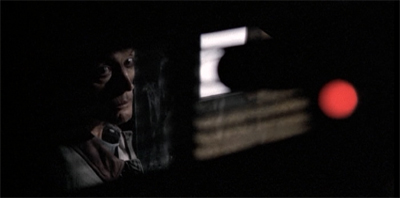
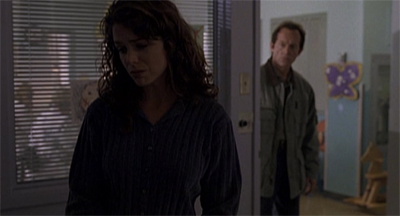
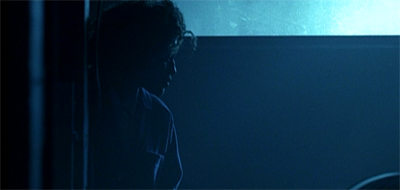
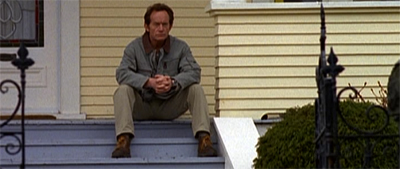
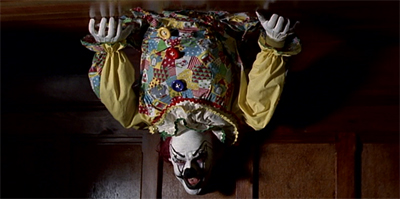











Leave a comment